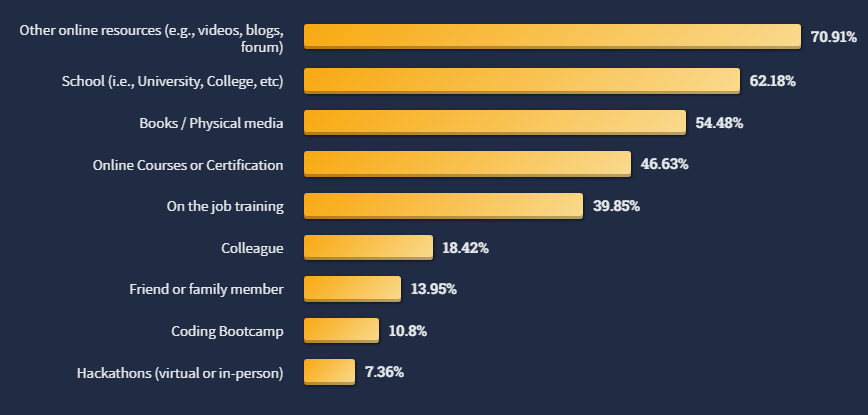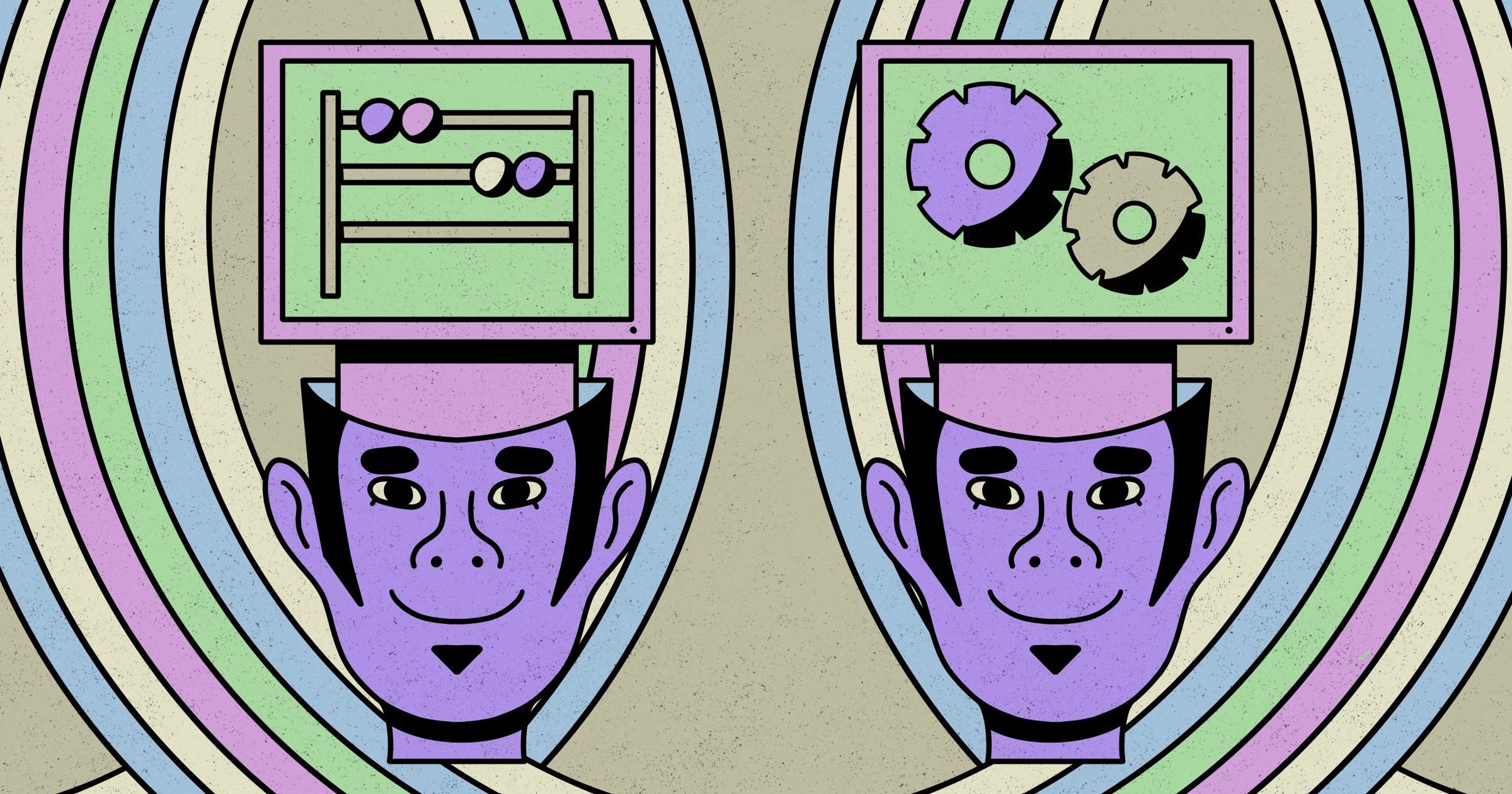Getting a job as a programmer no longer requires that you have a degree in that field—or even a degree at all. Our 2022 Developer Survey found that slightly more than 70% of respondents learned to code using online resources. And about a quarter of professional developers did not have a college degree.

Of course, plenty of developers do have college degrees in relevant fields. If you’re looking at colleges in the hopes of landing a coding job, you may have to decide: Computer science or software engineering? Both are great fields to study for a career in technology, so what’s the difference?
A formal education in either subject will contain a large amount of overlap, particularly in the first half. Both fields require a solid understanding of math, logic, and basic computer programming skills and concepts. After this, the two diverge significantly.
This article will discuss the subjects that each of these majors will cover, where they overlap, and which you might want to pick depending on where you’d like your career to go.
What is computer science?
Computer science is the study of algorithms, information, and automation. This is a domain separate from programming; computer science builds off of the theory of computation, which has deep roots in logic, mathematics, and philosophy from hundreds of years before computers existed. In fact, the first computer science departments grew out of mathematics. The founder of the first computer science department, Purdue University professor Samuel D. Conte had a PhD in mathematics.
You can get a sense of what a university computer science degree will teach you by the questions you should be able to answer in the curriculum. What is the most efficient way to sort a list of random numbers? How can we transmit information between two people privately and how do we mathematically prove it is secure? Is there an algorithm that will sometimes return an answer, but other times continue endlessly? Much like how material science seeks to understand the fundamental properties of the things that civil engineering uses to build a bridge, computer science explores how we can organize and compute information as the foundation to writing software.
Take a look at our Computer Science Stack Exchange to get a sense of what sort of questions the field covers. Where the questions on StackOverflow.com cover the ins and outs of using programming languages and tools that build software, the computer science site is almost entirely about algorithms.
What is software engineering?
However, knowing how to calculate things doesn’t mean you can build the operating systems and computer programs that have become ubiquitous in modern life. Software engineering is the study of how to design, build, test, and maintain software. How do you coordinate thousands of programmers to work together to build a new version of the operating system on your phone and make sure that millions of people can install the update successfully? How does a social media website organize its code so that people can use the same program in dozens of different languages? Software engineers need to understand the algorithms they use to build a product, but they focus their attention on designing and building a working product for thousands or millions of people.
In fact software engineering is less about the actual code that gets written and more about the processes one goes through to write the code. Ensuring that code is properly tested, deploying code changes to production are reliable and automated, and teams are working together with a common set of standards and practices are paramount to running a successful software project. Here at Stack Overflow, we have an Architecture Guild that regularly meets so that we can come up with standardized practices for all of engineering that ensure that our teams are working together as best as possible. As Yogi Berra once said, “In theory, there is no difference between theory and practice. In practice, there is." Software engineering is about ensuring that coding practices get as close to theory as practically possible.
However, there is a specific difference between these degrees in certain countries like Canada (and technically in many other places). Canada has very strict laws regulating who can call themselves an engineer: to do so, you must be licensed by the local engineering board where the title will be used, similar to how there are rules around calling yourself a medical doctor or a lawyer in many countries. While this requirement initially came about because of a bridge collapse, it applies to anyone who calls themself an engineer, including software engineers. If you want to say you are a software engineer (or anything else with “engineer” in the title) in Canada, you need to be properly certified; otherwise you risk being fined.
Again, to see what the field discusses, check out the Software Engineering Stack Exchange. You’ll see a lot of questions about things like software design, bug tracking, and deploying code.
What else could I study if I want to code?
Computer science and software engineering alone aren’t enough to build a software product. Computer engineering works to design the CPUs, GPUs, and data storage devices that enable our digital worlds and none of those devices would even turn on without electrical engineering. Mathematics builds the theory and understanding of numbers that underpin the foundation of cryptography and statistics builds the tools to process and understand the information we gather. Newer fields like data science are starting to get their own degrees as artificial intelligence and advanced statistical modeling blurs the line between math, statistics, and computer science. Many other fields in science and engineering use a combination of computer science, software engineering, computer engineering, and mathematics to design planes, develop vaccines, and create animations for TV and film. In fact, many of the best programmers I know have degrees in mechanical engineering or bioinformatics and use their skills to develop robotic systems or medical drug treatments. Even medical degrees like neuroscience and audiology are now requiring programming knowledge so clinicians can compare brain images or sound recordings in scientific programming languages like R or MATLAB.
Put together, computer science research creates the building blocks that software engineering uses to design and build a working computer program. Here at Stack Overflow, software engineering practices have helped us bring together a community that serves around 500 million pages a month. Our team uses these practices to coordinate over 200 programmers to put together the website you see today. What most people might not know is that this website runs on just five servers together small enough to fit in your living room. A solid understanding of computer science principles allowed our team to efficiently store and compute all the data we keep to help people get answers to their questions. As we work to move our company fully into the cloud, we rely on software engineering principles to allow us to continue to smoothly run all our websites while we redesign our software architecture and move our code from physical servers to cloud services.
There is no right path for how to become a developer, so keep asking questions to help you find the best path for you!
